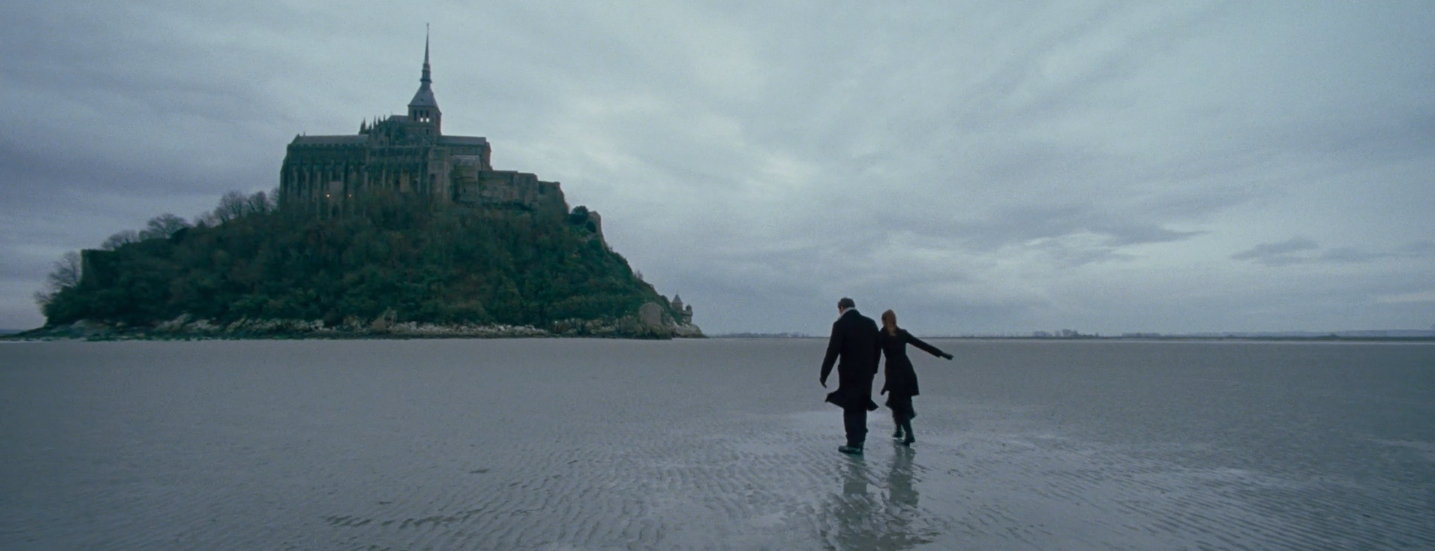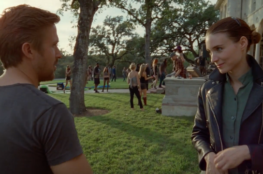There is a moment when Jane, having been rejected by her lover Neil in Terrence Malick’s To the Wonder, declares with equal parts scorn and sorrow, “What we had you turned it into nothing.” For while Jane, an apparent Christian, makes clear that she wants her love with Neil to be elevated to something higher, the latter settles for carnality before turning his affection back towards Marina, a Frenchwoman we see Neil spending time with abroad at the beginning of the movie. Although the fruits and end of Neil and Marina’s relationship remains somewhat ambiguous by the film’s end, Jane’s devastation over having given her body to a man who has no interest in her soul is made painfully apparent.
Were Jane to recount her story to many “good” (conservative) Christians, she would likely be met with chastisement. How could she be so foolish to give of herself physically outside of the bonds of matrimony? Should she not have known that Neil, who professes nary a Christian sentiment in and can be seen reading Heidegger’s Being and Time at one point, would eventually part once he has tasted of the forbidden fruit? Without trivializing Jane’s error, let me suggest that Christians, including Catholics, who take these and similar postures often do so in splendid isolation of the manner in which misplaced hope can drive persons to make decisions which look not only deeply foolish in hindsight, but are objectively deeply sinful. The sense which some hold is that a sin on the frontend will lead to a positive payoff on the backend. Maybe this is why I am no longer surprised when I meet conservative-to-traditional Catholic and Orthodox couples who slept with each other before marriage; there remains an underdeveloped but no less present belief that the ends justifies the means.
Of course, you cannot say such things in the polite company of “official” channels of advice to couples regarding dating, engagement, and matrimony. The entire industry that has popped up around these topics, including bedroom matters post-marriage, depends upon a highly naïve understanding of how human beings think and behave, not just in these times, but in centuries past. Although the costs of out-of-wedlock sexual intercourse were much higher before the advent of modern contraception and more relaxed social standards regarding sexuality in general, it is difficult to maintain that these costs alone ever nullified desire. And while there have always been licentious individuals of both sexes roaming about, there is a lacuna in our understanding of relationships and sexuality if we are to simply hold that people engage in impermissible sexual behavior merely because they are endowed with red hot sin-loving souls. There is a deeper distortion at work, one that cannot be cured with Jane Austen novels and flowery rhetoric about the power of chastity.
Malick, I suspect, understands this to a better extent more than professional moralists. Without having recourse to the blunt instruments of shame and indignation, he portrays, to the best of his cinematic powers, the radiance and beauty of love, even when it is removed from its proper context. He aims not to punish the participants from the outside, but rather allow their own torments to enlighten them. Jane is never singled-out for chastisement by a cleric, a friend, or future lover; it is the realization that what she had invested could never be returned which shatters her. As for Neil, although he remains imperviousness to the damaging consequences of his actions, ultimately they lead to a life of emptiness, hollowed out of the promise of fulfillment which is offered up during the early portions of To the Wonder.
While he barely shares any screen time with Neil and has but a passing connection to Neil’s romantic life, the character of Fr. Quintana is presented as a sharp contrast to Neil. Originally devoid of purpose and apparently on the brink of losing his faith, Quintana does not pull back into himself but rather opens himself up to the world around him, to the suffering souls also in search of love, and eventually, through his unselfish work, is given the grace to love again, not merely himself, but God and the world around him. Quintana’s love is elevated not through a sacramental union with another, but being placed in the service of a higher end. It is not his self-satisfaction which he seeks, but rather to serve as an instrument of mercy for those around him. Instead of collapsing into his own isolation and loneliness as does Neil, he allows himself to be renewed by a elevated love.


